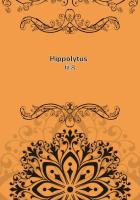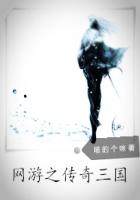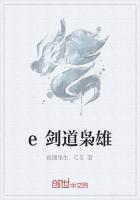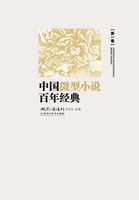Since the general's "mishap," as Colia called it, and the marriage of his sister, the boy had quietly possessed himself of far more freedom. His relations saw little of him, for he rarely slept at home. He made many new friends; and was moreover, a frequent visitor at the debtor's prison, to which he invariably accompanied his mother. Varia, who used to be always correcting him, never spoke to him now on the subject of his frequent absences, and the whole household was surprised to see Gania, in spite of his depression, on quite friendly terms with his brother. This was something new, for Gania had been wont to look upon Colia as a kind of errand-boy, treating him with contempt, threatening to "pull his ears," and in general driving him almost wild with irritation. It seemed now that Gania really needed his brother, and the latter, for his part, felt as if he could forgive Gania much since he had returned the hundred thousand roubles offered to him by Nastasia Philipovna. Three months after the departure of the prince, the Ivolgin family discovered that Colia had made acquaintance with the Epanchins, and was on very friendly terms with the daughters. Varia heard of it first, though Colia had not asked her to introduce him. Little by little the family grew quite fond of him. Madame Epanchin at first looked on him with disdain, and received him coldly, but in a short time he grew to please her, because, as she said, he "was candid and no flatterer" -- a very true description. From the first he put himself on an equality with his new friends, and though he sometimes read newspapers and books to the mistress of the house, it was simply because he liked to be useful.
One day, however, he and Lizabetha Prokofievna quarrelled seriously about the "woman question," in the course of a lively discussion on that burning subject. He told her that she was a tyrant, and that he would never set foot in her house again. It may seem incredible, but a day or two after, Madame Epanchin sent a servant with a note begging him to return, and Colia, without standing on his dignity, did so at once.
Aglaya was the only one of the family whose good graces he could not gain, and who always spoke to him haughtily, but it so happened that the boy one day succeeded in giving the proud maiden a surprise.
It was about Easter, when, taking advantage of a momentary tete-a-tete Colia handed Aglaya a letter, remarking that he "had orders to deliver it to her privately." She stared at him in amazement, but he did not wait to hear what she had to say, and went out. Aglaya broke the seal, and read as follows:
"Once you did me the honour of giving me your confidence. Perhaps you have quite forgotten me now! How is it that I am writing to you? I do not know; but I am conscious of an irresistible desire to remind you of my existence, especially you. How many times Ihave needed all three of you; but only you have dwelt always in my mind's eye. I need you--I need you very much. I will not write about myself. I have nothing to tell you. But I long for you to be happy. ARE you happy? That is all I wished to say to you--Your brother, "PR. L. MUISHKIN."On reading this short and disconnected note, Aglaya suddenly blushed all over, and became very thoughtful.
It would be difficult to describe her thoughts at that moment.
One of them was, "Shall I show it to anyone?" But she was ashamed to show it. So she ended by hiding it in her table drawer, with a very strange, ironical smile upon her lips.
Next day, she took it out, and put it into a large book, as she usually did with papers which she wanted to be able to find easily. She laughed when, about a week later, she happened to notice the name of the book, and saw that it was Don Quixote, but it would be difficult to say exactly why.
I cannot say, either, whether she showed the letter to her sisters.
But when she had read it herself once more, it suddenly struck her that surely that conceited boy, Colia, had not been the one chosen correspondent of the prince all this while. She determined to ask him, and did so with an exaggerated show of carelessness.
He informed her haughtily that though he had given the prince his permanent address when the latter left town, and had offered his services, the prince had never before given him any commission to perform, nor had he written until the following lines arrived, with Aglaya's letter. Aglaya took the note, and read it.
"DEAR COLIA,--Please be so kind as to give the enclosed sealed letter to Aglaya Ivanovna. Keep well--Ever your loving, "PR. L. MUISHKIN.""It seems absurd to trust a little pepper-box like you," said Aglaya, as she returned the note, and walked past the "pepper-box" with an expression of great contempt.
This was more than Colia could bear. He had actually borrowed Gania's new green tie for the occasion, without saying why he wanted it, in order to impress her. He was very deeply mortified.
IT was the beginning of June, and for a whole week the weather in St. Petersburg had been magnificent. The Epanchins had a luxurious country-house at Pavlofsk, [One of the fashionable summer resorts near St. Petersburg.] and to this spot Mrs.
Epanchin determined to proceed without further delay. In a couple of days all was ready, and the family had left town. A day or two after this removal to Pavlofsk, Prince Muishkin arrived in St.
Petersburg by the morning train from Moscow. No one met him; but, as he stepped out of the carriage, he suddenly became aware of two strangely glowing eyes fixed upon him from among the crowd that met the train. On endeavouring to re-discover the eyes, and see to whom they belonged, he could find nothing to guide him. It must have been a hallucination. But the disagreeable impression remained, and without this, the prince was sad and thoughtful already, and seemed to be much preoccupied.
His cab took him to a small and bad hotel near the Litaynaya.















